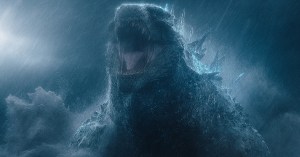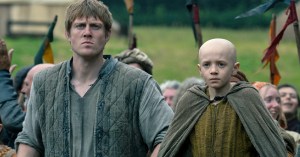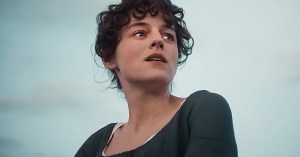Westworld: 7 Things We Need to Know Now
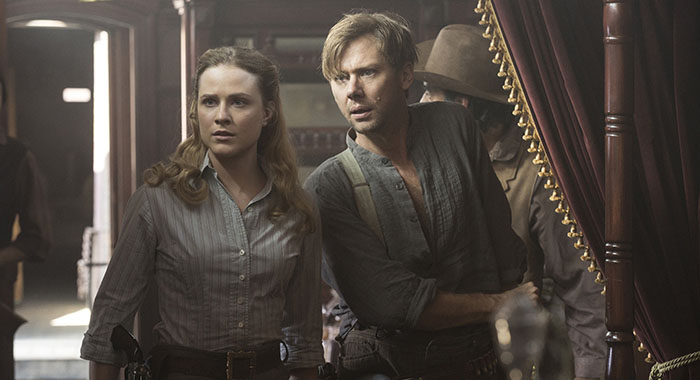 Warning: This post contains spoilers for the first seven episodes of HBO’s Westworld
Warning: This post contains spoilers for the first seven episodes of HBO’s Westworld
After last week’s big reveal that Bernard (Jeffrey Wright) is a Host, everything we thought we knew about the “real” world of Westworld is suddenly thrown into doubt. In a series about the existential crises of sentient robots coming to grips with their own realities, this fork in the road was going to come sooner or later. But with only three episodes left to go this season, there are bound to be a lot more forks before we ride that train back home.
Here are seven questions worth noodling over when you sit down to watch Sunday night.
What’s at the center of the maze?
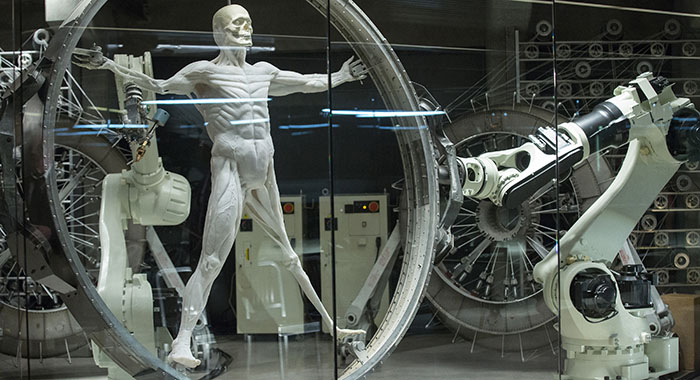
The maze is the McGuffin of season 1: It set the Man in Black (Ed Harris) off on his brutal quest, apparently in search of the secret behind what gives the Hosts life. Also, Bernard tells Dolores (Evan Rachel Wood) that if she reaches the center, she can, perhaps, be free — though the concept of freedom in this world has been decidedly corrupted by Robert Ford (Anthony Hopkins).
The maze emblem that mysteriously appears inside the bloody scalp of Kissy (Eddie Rouse) gradually starts popping up everywhere, either to remind the character of his or her quest or to serve as a giant red herring. Remember, the same guy who brought you the Dharma Initiative and its ubiquitous logo in Lost executive produces Westworld, so don’t be surprised if the show gets a little J.J. Abrams-y.
Who is Bernard, really?
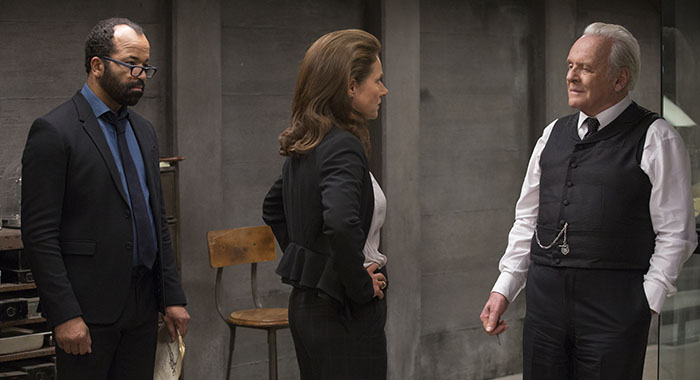
There’s one big mind-bending fan hypothesis out there that Bernard is really Arnold — a copy of him, that is. Ford has shown he can synthesize robot versions of people who actually existed, and the closeness of their relationship — modified with a little subservience on Bernard’s part — could be the same as what Ford and Arnold had. The idea that Bernard has been at Westworld “forever” could therefore be much more than euphemistic.
But more unsettling is the question of whether Bernard has ever interacted with people outside of Westworld. The dead son is easily explained away as narrative programming and a manufactured photograph. (Note that Ford is the first person to mention Charlie by name in episode three, when he pointedly says, “I know that the death of your son, Charlie, weighs heavily on you.”) But Bernard has a wife, whom he videoconferences in a room full of people who can see her, and who also remembers their son. Is she a real person? Did Ford build a whole wife for Bernard? Or is that projection another sort of lie?
Who’s talking to the Hosts?
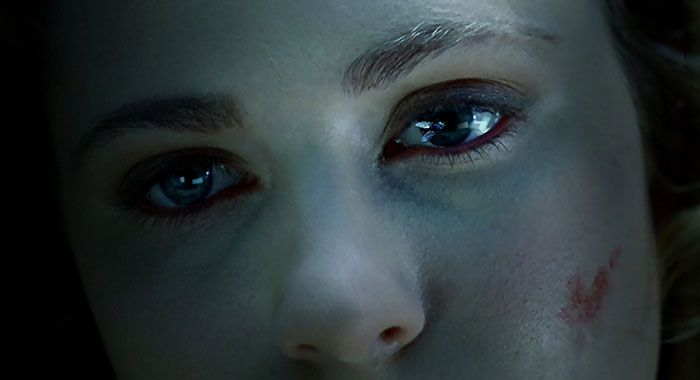
If we are to believe Arnold is really, totally dead, then Ford’s theory that first-generation Hosts like Dolores are accessing bits of code Arnold programmed decades earlier is the only way they could be hearing his voice now. That hypothesis meshes with Arnold’s pyramid of consciousness, designing Hosts to hear coded instructions as voices in their head.
The problem is, the voice seems to know what the Hosts are doing, and can interact with them in real time. It certainly stands to reason that in this futuristic sci-tech world, programmers could write code that could lie dormant for 35 years and then come to life, but it would unlikely be able to get feedback on their location and thoughts and respond accordingly.
Besides, Elsie (Shannon Woodward) was on the brink of revealing that someone is using the pirated satellite relay to actually speak to the Hosts, which leads us to…
Where is Elsie?
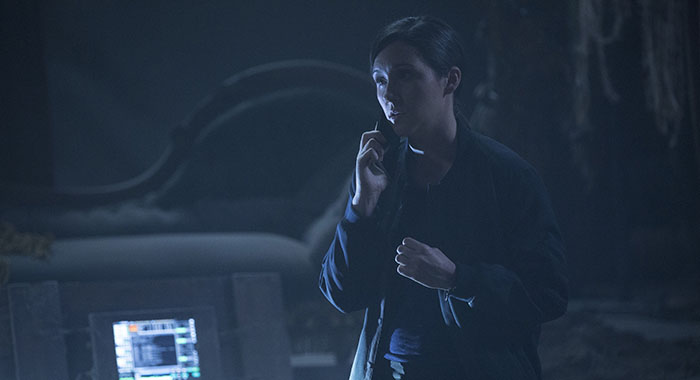
Elsie was kidnapped in the sixth episode, just as she was uncovering some major secrets about the person manipulating the first-generation Hosts. (Traipsing alone at night into a creepy abandoned theater filled with expressionless marionette heads and dusty sideshow props never ends well — ever.) Despite multiple attempts to reach him and the urgency of her words, Bernard accepts without question the explanation from an underling that Elsie went on leave early.
Could Ford-minion Bernard have taken Elsie? Was it not-really-dead Arnold? Is she even still alive? Elsie didn’t appear at all in the seventh episode, so hopefully we’ll get some answers this week.
Can Maeve really escape?
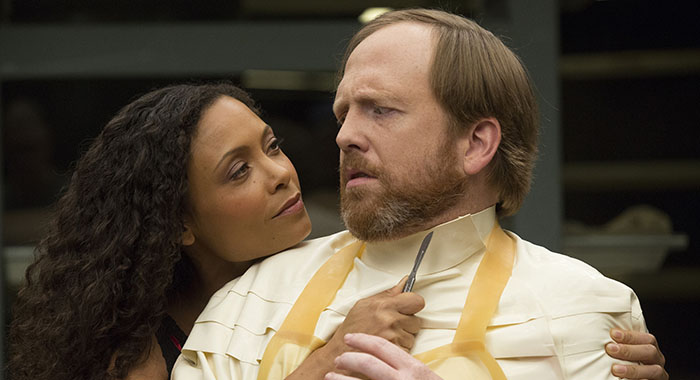
Fan-favorite Maeve (Thandie Newton) has amped up her intellect enough to override her narrative, even when she’s in the park. She’s learned all she can stomach about the fake world of Westworld, and she wants out. Sure, Maeve has the gumption and wit to fight her way out, but the myriad safeguards in place may make it physically impossible for her to leave the grounds.
On a more spiritual level, if Maeve lacks consciousness, can she ever truly be free? The limitations of the microchips in her brain may prove too much to overcome as she tries to become human, and she could wind up shorting out just like Peter Abernathy (Louis Herthum).
Who is the Man in Black?
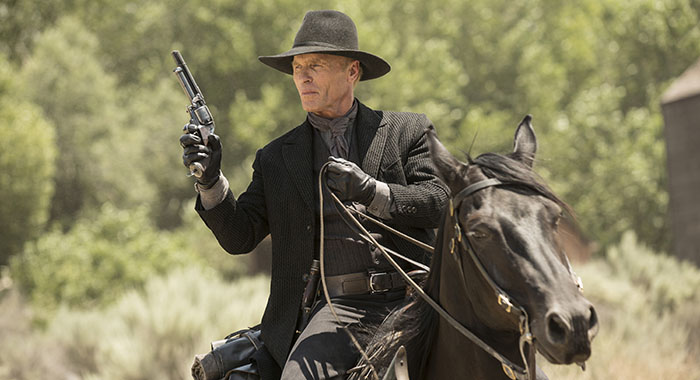
Ed Harris’ as-yet unnamed character definitely has an endgame. Superficially, it appears to be simply getting to the center of the maze. But what Ford asks him suggests deeper motivations: What does he hope to find there? The Man in Black appears to play the park’s ultimate villain, while also mostly ignoring all the narrative structure in pursuit of a game of his own devising. For all the confounding stories and characters in Westworld so far, this one takes the cake for its sheer ambiguity.
One popular fan theory holds that the Man in Black is an older William (Jimmi Simpson), who has returned each year in pursuit of whatever the center of that maze holds. (Slashfilm has a nice discussion of this theory here.) Maybe Dolores’ memories of their love were lost following the critical failure that required her to be reset, and William tries over and over to bring that version back. Some fans have noted that we don’t see what the Man in Black does to Dolores when he brings her into the barn — and that it could be he’s attempting to reprogram her.
Ultimately, how you feel about sentient artificial intelligence will determine who you root for in Westworld. After last week’s shocking revelation about Bernard and the subsequent murder of Theresa Cullen (Sidse Babett Knudsen), we’re pretty sure we won’t be rooting for Dr. Ford.
Am I really a Host?
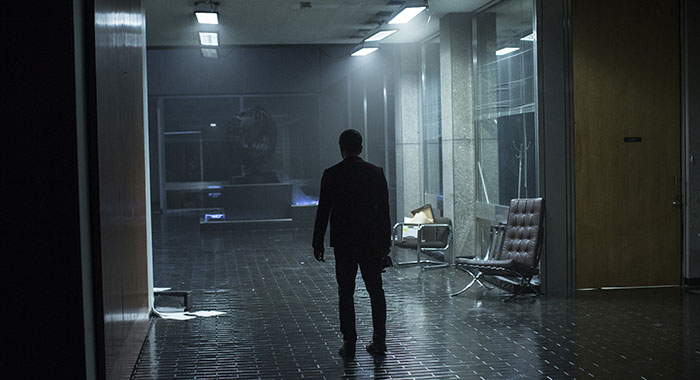
By the end of this season, we may all be questioning our own programming. Is that not what the slow build of our own brain function over time is? Are not we all susceptible to viruses and bad programming — even if they are of the biological kind and not mechanical? These moral and philosophical dilemmas are exactly the ideas put forth by author Michael Crichton in his screenplay for the 1973 film that starred Yul Brynner, upgraded for contemporary audiences by series creators Lisa Joy and Jonathan Nolan.
Westworld airs Sundays at 9 p.m. on HBO

